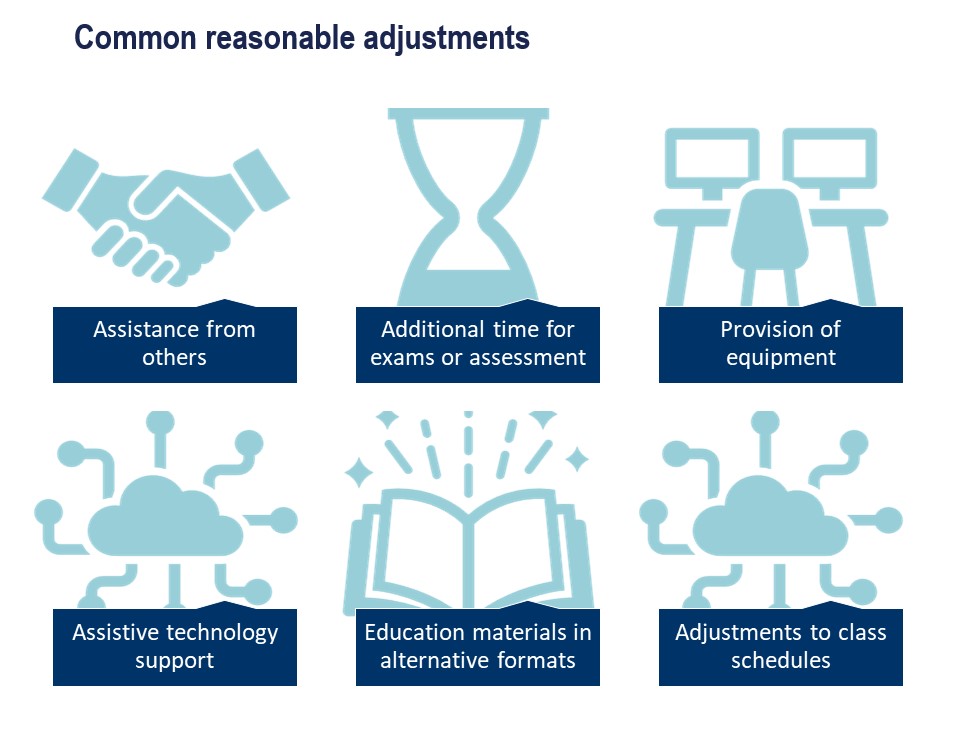Health Practitioner Reports and Access Plans
A person with disability has the right to access and participate in education and training in the same way as any other students. Under the Disability Discrimination Act all education and training service providers are required to ensure students with disability have access to education on an equal basis as students without disability and receive reasonable adjustments to enable their participation in essential course work.
You may require some study related reasonable adjustments or supports to assist you with your post-secondary education or training.
Most providers will have a disability practitioner employed in the student support services area to assist develop a unique access plan that will outline the reasonable adjustments and support to assist you participate in your studies.
What is an Access Plan?
An access plan (e.g., Learning Access Plan (LAP) or Integration Plan) is a document produced by the disability practitioner in consultation with you.
It is important to understand the nature of your disability and/or medical condition and how it impacts on your ability to undertake study. For instance, an Autism Spectrum Condition (ASC) student may have particular difficulty with scheduling and organising tasks associated with study or a wheelchair user may need modified equipment for lab-based activities.
Reasonable Adjustments
The plan will detail the academic adjustments required at your provider and will be based on information provided by yourself and a report from your health practitioner (see information on Health Practitioner Reports below).

Examples of reasonable adjustments may include, but are not limited to, the following:
- additional reading/perusal time and/or writing/typing time for exams
- provision of a scribe, notetaker or participation assistant
- specific software or assistive technologies
- modified equipment
- alternative forms of assessment to test knowledge
- assistance with study skills, and
- lecture notes or other material provided in different formats.
Your access plan can be reviewed at any stage by yourself or the disability practitioner. In many cases, your access plan may need periodic reviews as you progress through your studies to ensure the Plan accommodates different subjects or activities e.g., activities with practical components, work-integrated learning activities, different assessment items etc).
Health Practitioner Report (HPR)
Most post-secondary education providers, through the disability practitioner (DP), will require current supporting documentation of disability/medical condition on which the provider can base any academic adjustments to be made.
You will mostly likely be asked to provide a report, completed by your health practitioner, which will specify the nature and severity of your disability/medical condition, any medications currently prescribed and any possible effects of your condition or medication on your studies.
In addition, the health practitioner will make recommendations on the academic adjustments required and note any additional relevant information which may be useful.
This HPR must be provided upon request to the DP to start the conversation with you about developing a unique educational access plan.

